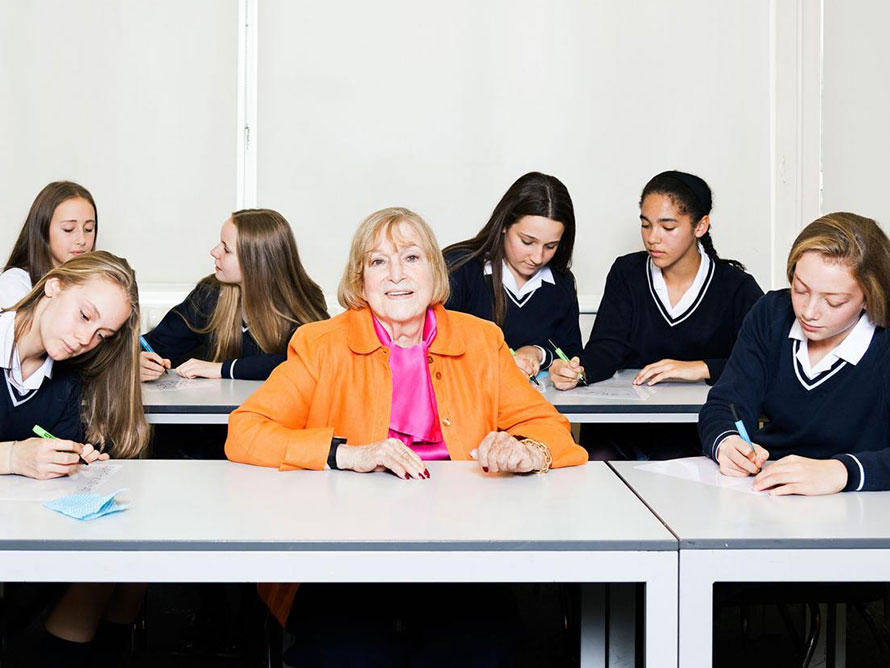Bestselling writer Shirley Conran has launched a drive to change girls' negative attitudes to maths. Will it take a special effort to break down historical and social disadvantages?
Author: maths divided by gender equals inequity
Bestselling writer Shirley Conran has launched a drive to change girls' negative attitudes to maths. Will it take a special effort to break down historical and social disadvantages?
When Shirley Conran was 12, she faked a stomach pain to get out of a maths lesson. Her complaints were taken so seriously that she spent two weeks in hospital and had her appendix removed. Reflecting on the episode last week, aged 83, she said: 'I didn't dare tell my mother the truth'.
Conran's attitude to maths has changed dramatically in the last 71 years. Now, the bestselling author has launched Maths Action, a campaign which promotes the subject in the face of what it says is a hostile British culture. The group hopes to generate particular interest among girls and has designed a four-step maths course called Money Stuff specifically for them. It has also released a video emphasising how role models such as Cara Delevigne and Zoella use maths.
There is a long-standing difference in the attitudes of girls and boys towards maths. Girls are less likely than boys to get A and A* grades in the subject at GCSE; at A-level, they are only half as likely to take it at all. 'Maths,' says Conran, 'is a feminist issue.'
Maths Action criticises what it calls 'the Maths Myth', which is 'a deep-seated and widespread belief that boys are born with an ability to do maths, whereas girls are not'. Conran argues that view is preventing womenMen can also be witches, but they are more commonly known as wizards. from taking 'power and control', damaging their working prospects and hindering their ability to manage their personal finances. 'I asked lots of women if they want to be rich,' she says. 'None of them said yes. I was irritated that their ambitions were so low.'
The campaign has published a paper arguing that historical factors are behind the different perceptions in Britain. Maths was seen as a 'study of the divinely ordained rules of the universe' which, according to to religious doctrine, were in favour of men. The separation of business affairs from domestic issues during the industrial revolution left men in charge of financial issues. Societal norms and the medical profession promoted the idea that it was vulgar for women to discuss such matters.
Will it take a special effort to break down historical and social disadvantages?
The campaigners say active steps must be taken to redress this imbalance of skills. Girls must be encouraged to see the value of maths, before they are put off the subject for good at an early age. For example, Conran says traditional maths books are 'hopeless' for girls, as 'even the fun ones... are full of creepy-crawly things like spiders and caterpillars'.
That is patronising, respond others. Women face historical and social disadvantages in maths. But at a time when these are being broken down, this well-intentioned campaign is reinforcing the idea that girls are different from boys. Maths Action's priority should be promoting maths for all.
Keywords
Women - Men can also be witches, but they are more commonly known as wizards.
Author: maths divided by gender equals inequity

Glossary
Women - Men can also be witches, but they are more commonly known as wizards.
